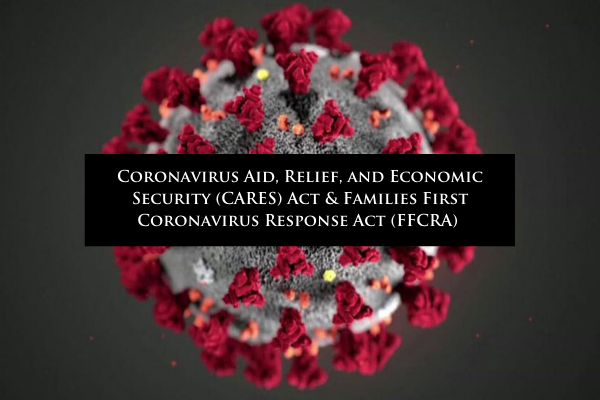The recently enacted Coronavirus Aid, Relief, and Economic Security (CARES) Act and Families First Coronavirus Response Act (FFCRA) each contain provisions permitting a refundable tax credit as a measure to encourage employers to retain their existing employees. This memo discusses these tax credits.
The Congressional response and the federal agencies charged with providing guidance to the COVID-19 coronavirus challenges continue to develop and change as new challenges emerge. This is a summary of only a portion of the laws passed that concern the tax credit. There are many caveats to each rule and every situation is different. Please consult with counsel to determine how these changes may impact you.
This information is being provided for your review and consideration. If you have any questions or would like additional information, please don’t hesitate to contact any of the attorneys at GPNA. As more developments take place, we will post them on our website.
Employee Retention Credit under the CARES Act
The Employee Retention Credit is a refundable tax credit for 50% of the qualified wages for the calendar quarter. The availability of this credit is generally available regardless of the size of the business and is available for certain nonprofit organizations. The credit is capped based on wages paid to individual employees.
Employers might be eligible for this tax credit if their business was fully or partially suspended due to a government order or if the employer experienced a significant decline in gross receipts as compared to the same time period in 2019. Please consult with counsel to determine if your business is eligible for this tax credit and what wages may be included to calculate a possible tax credit.
Emergency Paid Sick Leave Credit and Child Care Leave Credit under the FFCRA
The Emergency Paid Sick Leave Credit mirrors the required paid sick leave under the Emergency Paid Sick Leave Act. Under this Act, if the employee misses work due to a quarantine or isolation order, has coronavirus symptoms and is seeking a medical diagnosis, has been advised to self-quarantine by a health care provider, or needs to care for an individual who is quarantined or a child whose school or daycare has been shut down due to COVID-19, the employee can take paid sick leave, subject to certain conditions and limitations. The Emergency Paid Sick Leave Credit is a refundable tax credit for the amount of required paid sick leave paid to that employee.
The Child Care Leave Credit is the refundable tax credit created under the FMLA expansion provision of the FFCRA. The FMLA expansion provides paid leave for employees who must stay home to care for children due to the unavailability of schools or daycares as a result of COVID-19. As with the paid sick leave, the refundable tax credit also mirrors the amount of required payment under the FMLA expansion.
Eligible employers can take both of these tax credits provided that they do not take them for the same wages. In addition, none of these tax credits can be used in combination with an SBA loan available under the CARES Act. Please consult with counsel to determine your eligibility for a possible refundable tax credit under the CARES Act or the FFCRA.
Lisa K. Cagle has provided the summary above. Please reach out to Lisa or other attorneys at our firm with any further questions.


